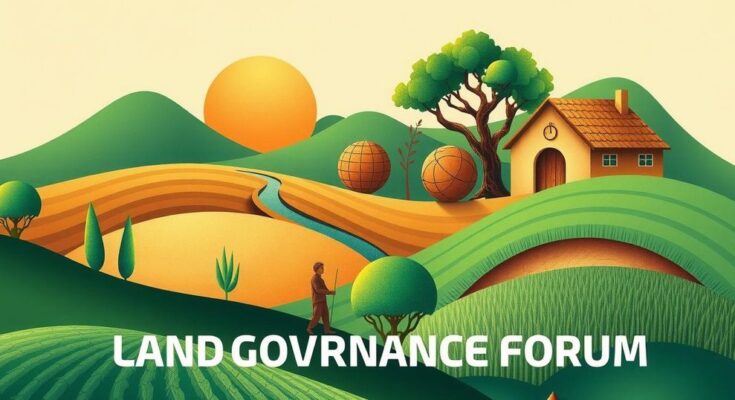The Multi-Actor Platform on Land Governance in Liberia has initiated a two-day forum aimed at reforming land administration. Key figures from various sectors have come together to address persistent challenges and focus on actionable reforms. The discussions stress the need for improved land governance, inclusivity, and the synchronization of land policy with environmental objectives.
Monrovia – The Multi-Actor Platform on Land Governance and Responsible Agricultural Investment in Liberia, known as MAP Liberia, has kicked off a two-day national roundtable dedicated to reevaluating and reforming land administration in the country. With participation from government agencies, civil society organizations, traditional leaders, and various stakeholders, the event marks an important moment for Liberia’s land sector, as attendees aim to reflect on what has been achieved while addressing ongoing challenges.
This forum is much more than just a conference, according to organizers. It is a chance for those in charge of land governance to step up and put discussions into action, creating tangible outcomes that positively impact communities. “We must always take stock of what we are doing as land actors,” noted Ms. Julie Weah, Executive Director of FGGDI and Co-convener of the MAP Steering Committee, as she opened the session. She pointed out that while land governance isn’t at its peak, it has seen some movement since past efforts. “Let us not just talk,” she urged, emphasizing that actions should manifest visibly within the communities involved.
Echoing this sentiment, representatives from several national institutions reiterated calls for reform. Key figures from the Ministry of Agriculture, Environmental Protection Agency, ActionAid Liberia, Landesa, Firmsieve Liberia, and the National Climate Change Secretariat voiced their commitments to sustainable land governance as integral to Liberia’s development. Sam Lamine, representing the Ministry of Agriculture, pushed for comprehensive reforms to ensure that land use supports agricultural development significantly.
“Without land development, we cannot do anything in agriculture,” Lamine asserted, emphasizing the urgent need for change. “Next year, when we come back, we must have results to show.” Meanwhile, Nuoh Harris from ActionAid Liberia stressed the importance of improved coordination among land sector actors and insisted on shared accountability for policy implementation. “We must re-evaluate our recommendations,” he stated, while reaffirming ActionAid’s role in defending land rights, particularly for women leading in agroecology.
Simpson D.C. Snoh from the National Climate Change Secretariat highlighted the critical interconnection between land policy and Liberia’s climate initiatives. “We cannot survive without the environment,” he remarked, underlining the necessity of ensuring that strategies serve not only economic but also environmental goals.
During the sessions, participants took time to critique the existing land governance structure that has been described as falling short in terms of inclusivity and accountability, lacking a clear sustainable management roadmap. Discussions revealed that, despite advancements made since the Land Rights Act was enacted in 2018, weak enforcement continues to hamper progress, particularly for marginalized communities such as women, youth, and persons with disabilities.
A chorus of voices called for stronger institutional reforms, more defined policy frameworks, and increased investments in rural land governance. Moreover, the importance of customary land rights and broader education regarding land policies at community levels was a recurring theme. As one participant wisely summarized, “If we want national development to be inclusive, we must put land at the center of our planning. Without land, there is no agriculture, no shelter, no security. It all begins here.”
The MAP Liberia roundtable has underscored a vital moment for land governance reform in the country. Key stakeholders, from government to civil society, recognize the need for actionable strategy to translate discussions into real outcomes. Calls for inclusivity, accountability, and dedicated policy reform echo throughout the sessions, challenging all involved to prioritize land rights and responsible agricultural investment.
Original Source: frontpageafricaonline.com




